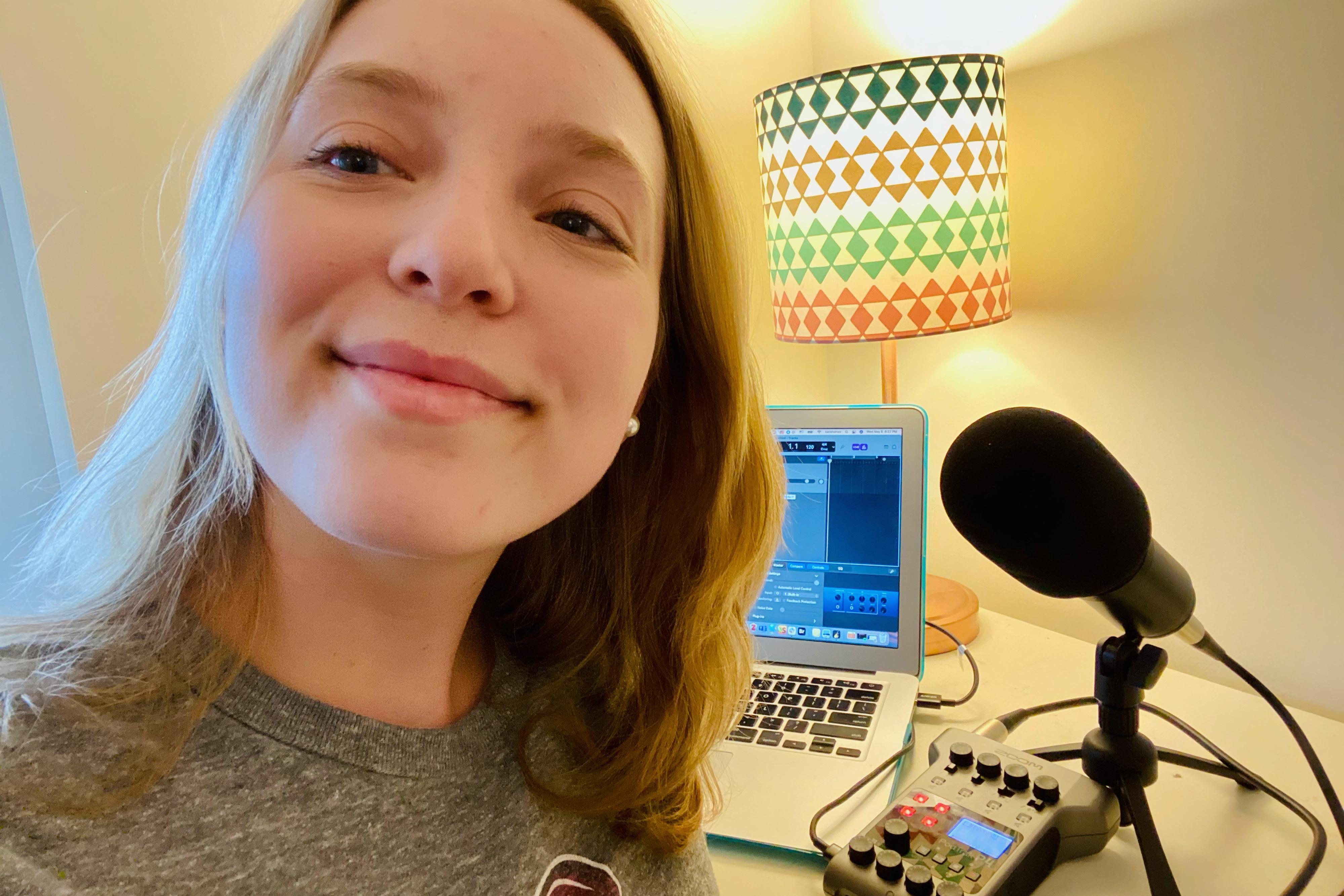Haines ’21 ’22 Creates Podcast to Educate on Controlled Burns
In the Capstone 2021 Series, members of the Class of 2021 showcase their capstone and thesis projects.
Media and Communications and Biology double major Katherine Haines ’21, ’22 explores how conservation biology topics can be communicated through multimedia tools like podcasts, in order to be more effective in educating the general public.

One major barrier that scientists face when communicating their research to the general public is the scientific terminology and data that non-scientists might struggle to understand. One of the ways to make scientific research more accessible is to use multimedia tools like podcasts, which provide abbreviated versions of concepts that impact people’s everyday lives in more layman’s terms.
Haines’ podcast focuses on information disbursement about controlled burns, an important topic in conservation, and explains the benefits of it. By creating four podcasts that are 30 minutes or shorter in length, Haines educates listeners on controlled burns and how they affect them and their surroundings.
To do this, Haines needed to become an “expert” herself. This began with joining Associate Professor of Biology and Dendrochronologist Dr. Lauren Howard in his lab and learning the intricacies of controlled burns and the research that supports it. Haines then identified experts who would be guests on her podcasts, Flame Game: A Podcast About Controlled Burns, leading to her decision to have four podcasts to feature each expert and each facet of controlled burns.
The first episode focused on providing the background of controlled burns and the work that is going into removing the culture of fire suppression that has been practiced in the United States for the last 100 years. Haines met with Mike Gallagher, a research ecologist who works for the USDA Forest Service at the Research Station at the Silas Little Experimental Forest in the New Jersey Pinelands to get an understanding of why controlled burns are important and what he does in his research. He also provided information on how this culture of fire suppression began, pointing at campaigns like Smokey Bear as one barrier to controlled burns.
In episode two, Haines talked with Arcadia University alumna Trinity Norwood who is a citizen of the Nanticoke Lenni-Lenape nation, and Dr. Marc Abrams, a forest ecology professor at Penn State University, to gain insight into the invaluable influence Native Americans had on the composition of our forests. Native Americans practiced forest management and controlled burns long before western colonization and helped to create the fire-adapted forests that we have today. Their insight into current forest management practices are helping to change the stigma of fire in order to prevent the large-scale out-of-control wildfires that threaten many parts of the United States and the world.
In episode three, Haines and Dr. Howard had a conversation about the research he is doing at Arcadia University in partnership with the Nature Conservancy to date fire scars and create a historical chronology of the fires in the area. He explained the importance of dendrochronology and the processes that are done when completing his research. Research like Dr. Howard’s provides a resource for organizations like the U.S. Fire Service and the Pennsylvania Game Commission on how to manage forests and introduce controlled burns from a historical perspective.
In the final episode, Haines met with Dr. Dave Robinson, a New Jersey state climatologist to discuss the impact climate change is having on our forests and how controlled burns can help to reduce them. Dr. Robinson also shared that you don’t have to be a burn manager to have an important role in supporting controlled burns and that many different jobs can help to make a difference.
Each episode was designed to highlight a specific aspect of controlled burns and provide opportunities for listeners to connect to different pieces of the podcast no matter what their career or education level. By producing audio podcasts in this way, more people can find reasons to care about the forests and to learn about them. Providing education in this way supports more informed listeners, but also consumers and voters who, by being more informed on the conclusions that scientists are coming to about our environment, can use their voice to make a difference.
Listen to Haines’s podcast on SoundCloud, and explore her entire thesis project.
The Capstone 2021 Series provides a platform for members of the Class to showcase their projects and share their expertise. Capstone is an opportunity for students to engage in an extended project that reflects their academic experiences. Projects combine their fields of study with personal interests.
For more information on Capstone 2021, visit Arcadia.edu.


